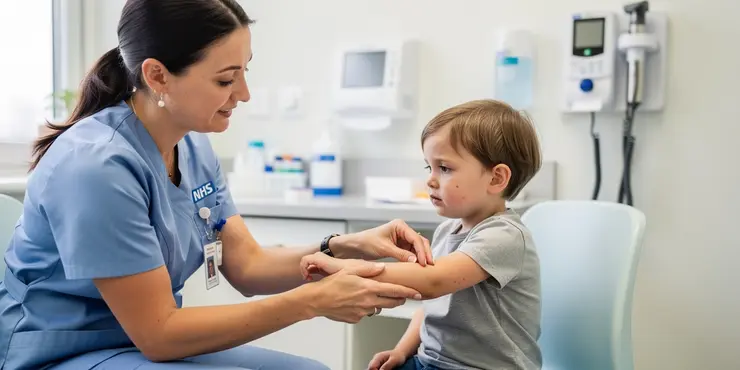
Find Help
More Items From Ergsy search
-
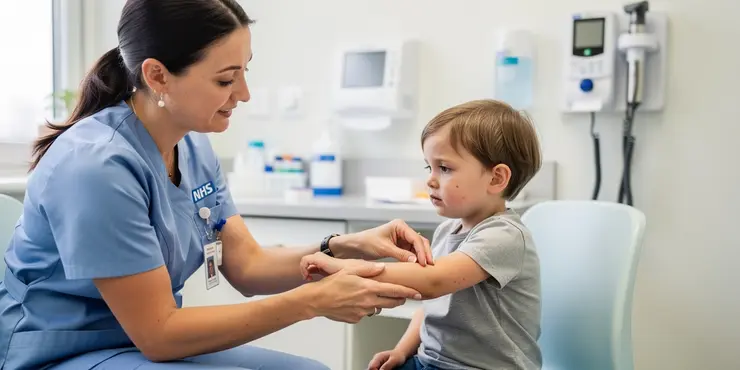
Is there a vaccine for impetigo?
Relevance: 100%
-

Is impetigo contagious?
Relevance: 65%
-

Is impetigo painful?
Relevance: 64%
-

Pharmacy First – Impetigo Service
Relevance: 64%
-
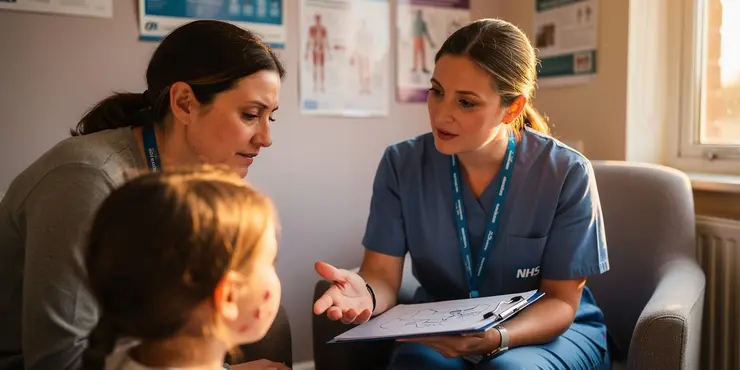
How is impetigo treated?
Relevance: 62%
-
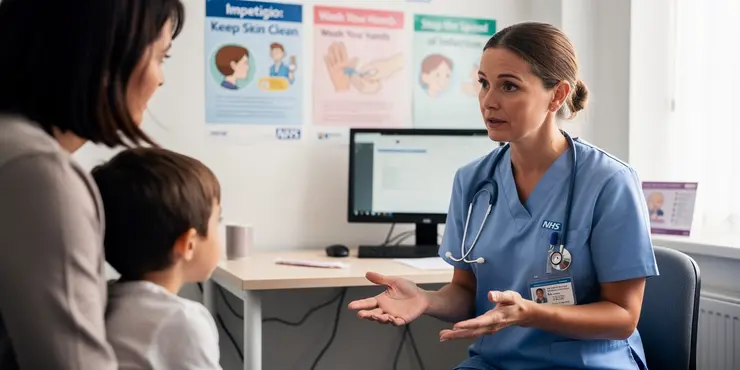
How can I prevent the spread of impetigo?
Relevance: 61%
-
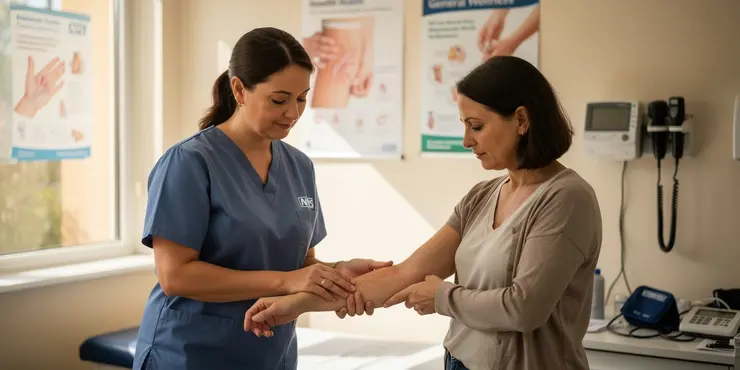
Can adults get impetigo?
Relevance: 60%
-

Can impetigo become serious?
Relevance: 60%
-
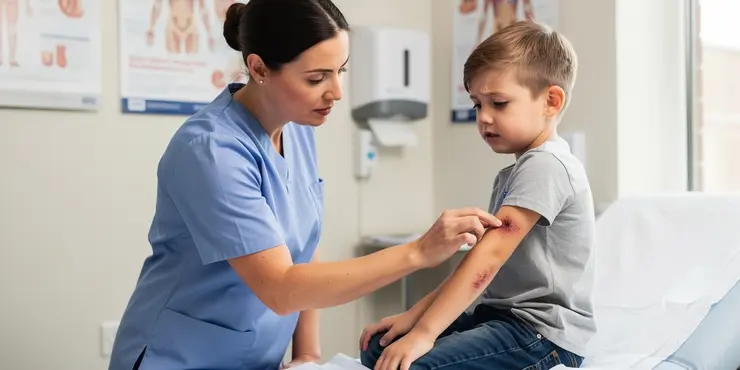
Can I get impetigo more than once?
Relevance: 60%
-

How can I tell if I have impetigo?
Relevance: 59%
-

Minor ailment scheme - Impetigo
Relevance: 59%
-

Are there any home remedies for impetigo?
Relevance: 59%
-

When should I seek medical help for impetigo?
Relevance: 56%
-

How long does it take for impetigo to heal?
Relevance: 56%
-
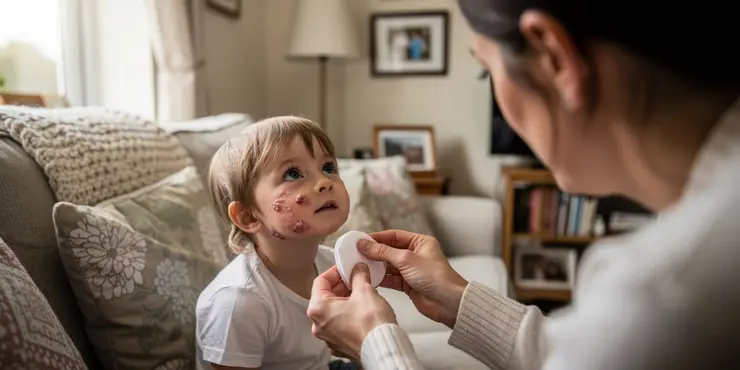
Can impetigo spread to other parts of my body?
Relevance: 55%
-
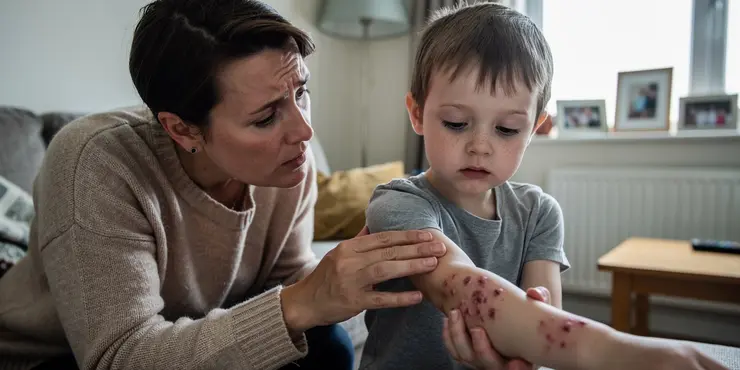
What should I do if my child has impetigo?
Relevance: 40%
-
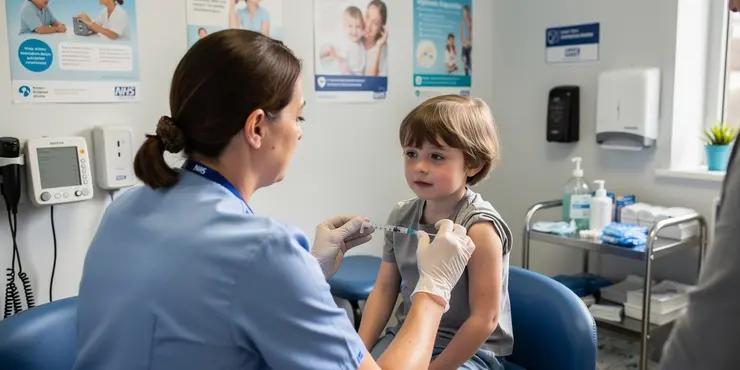
Are there vaccines for meningitis?
Relevance: 37%
-
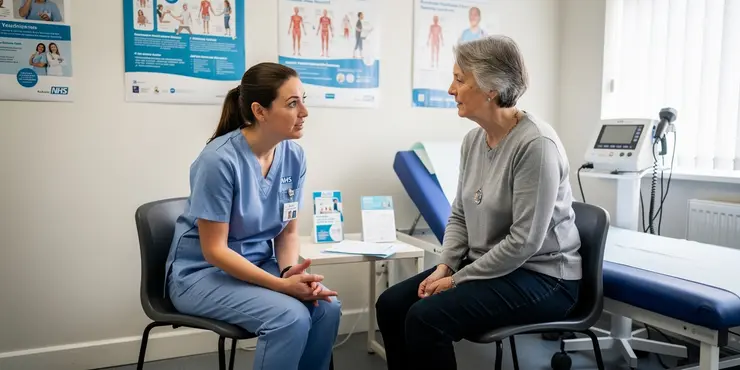
Are vaccines safe?
Relevance: 37%
-

What is a vaccine?
Relevance: 37%
-

Is there a vaccine for H3N2?
Relevance: 37%
-

Is there a vaccine for norovirus?
Relevance: 36%
-
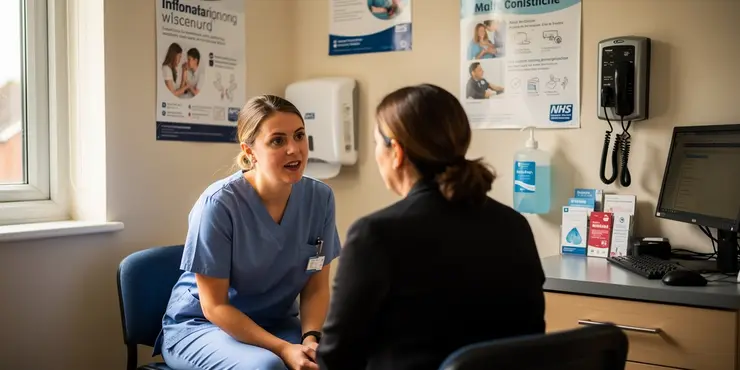
Is there a vaccine for gonorrhoea?
Relevance: 36%
-
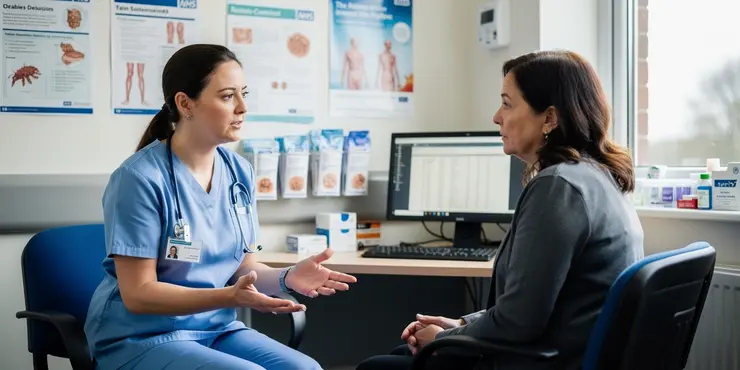
Is there a vaccine for scabies?
Relevance: 35%
-
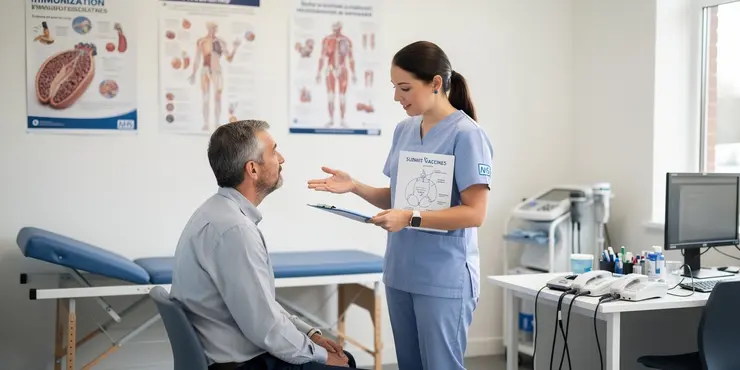
What is a subunit vaccine?
Relevance: 35%
-

What is a live-attenuated vaccine?
Relevance: 35%
-
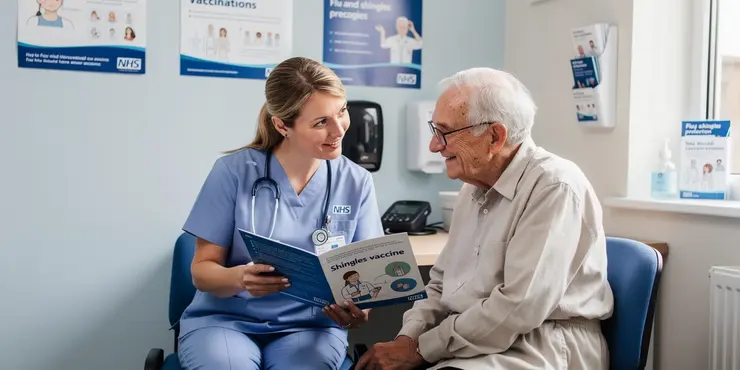
Is the shingles vaccine safe?
Relevance: 35%
-

Children's Vaccination Schedule
Relevance: 35%
-
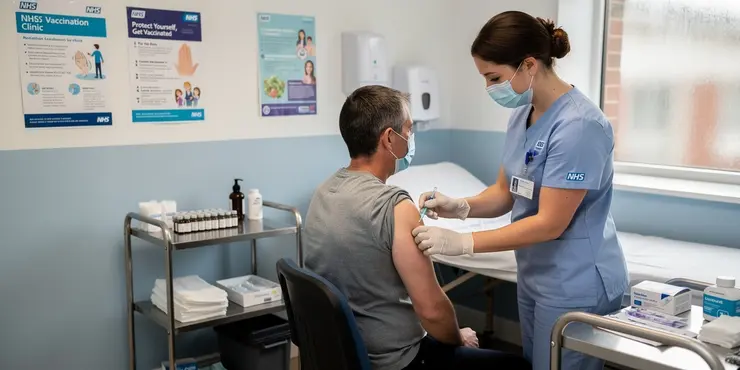
How do vaccines work?
Relevance: 35%
-
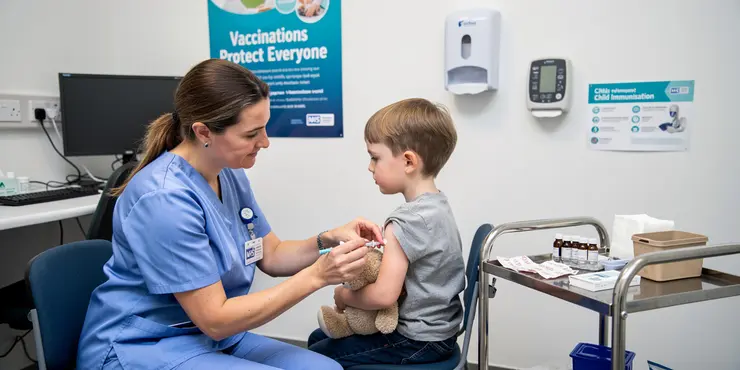
Why are vaccines important?
Relevance: 35%
-

What is the MMR vaccine?
Relevance: 35%
-
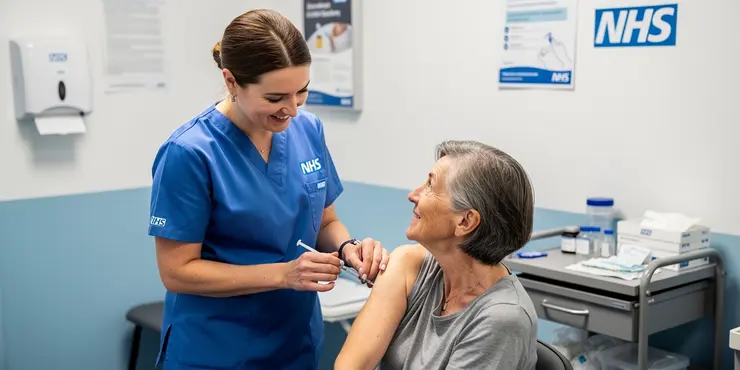
Is there a vaccine for the Zika virus?
Relevance: 35%
-

Are vaccines linked to autism?
Relevance: 35%
-
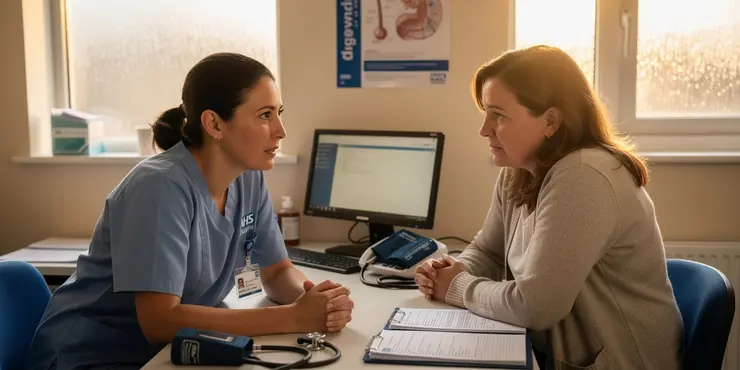
Is there a vaccine for Lyme disease?
Relevance: 35%
-
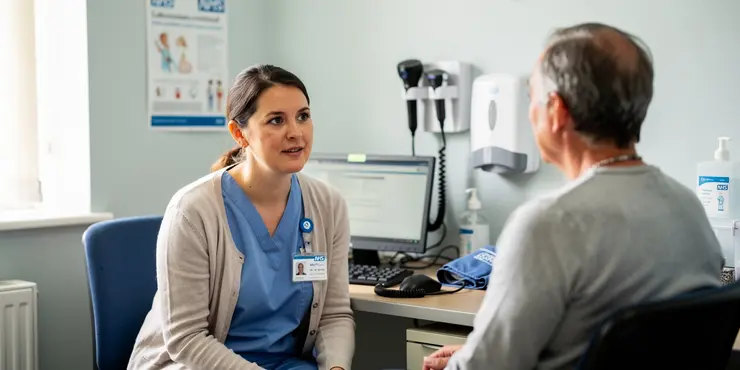
Is there a vaccine for Marburg virus?
Relevance: 35%
-
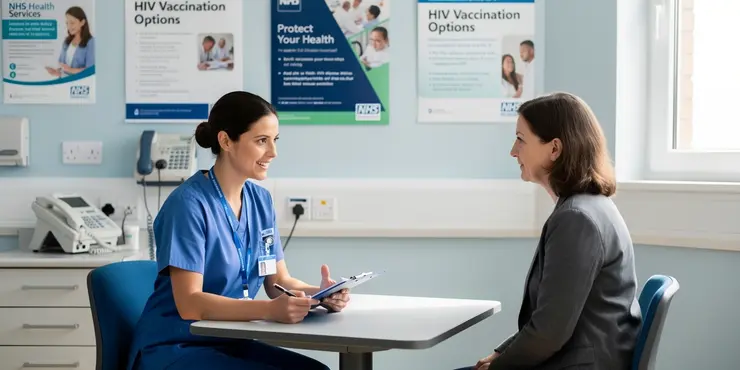
Are there vaccines available for HIV?
Relevance: 34%
-
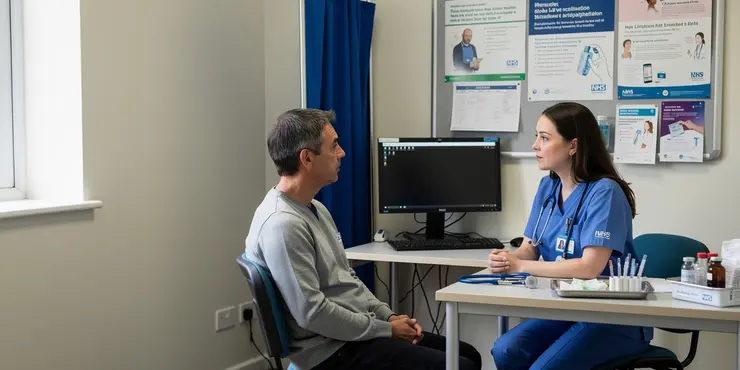
Are there vaccines for the bubonic plague?
Relevance: 34%
-
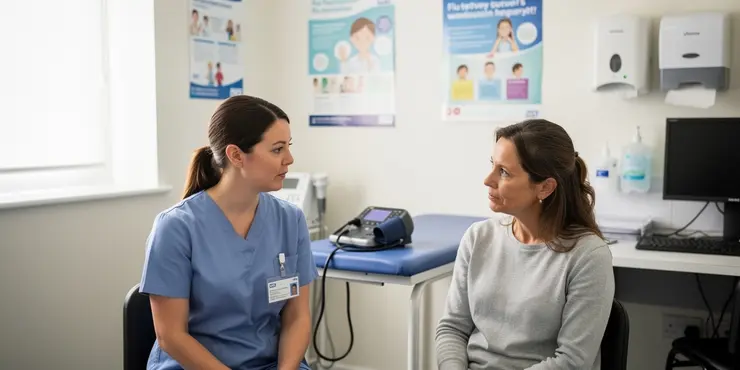
What if I'm not eligible for a free flu vaccine, can I still get vaccinated?
Relevance: 34%
-
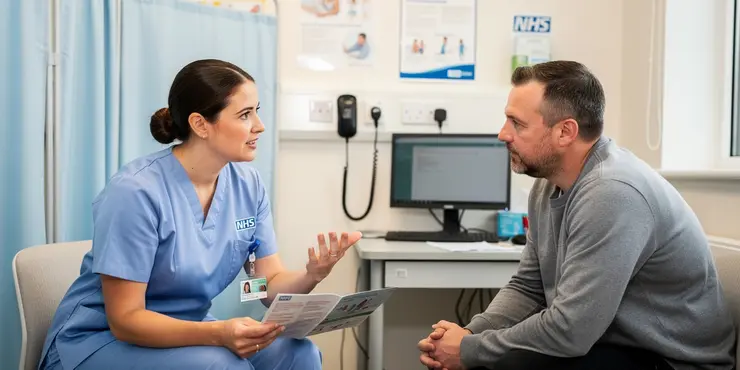
What are the different types of vaccines?
Relevance: 33%
-
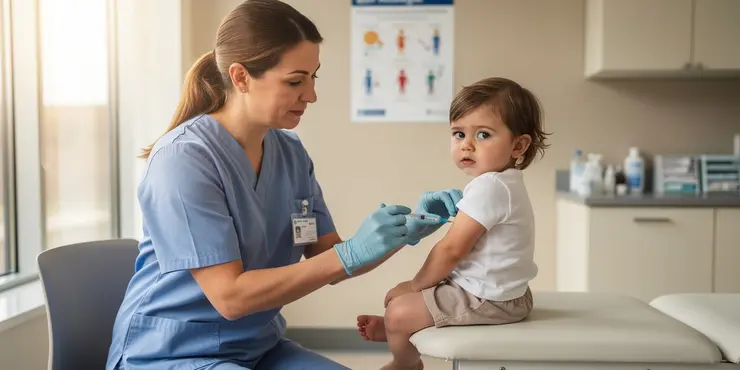
Can everyone receive vaccines?
Relevance: 33%
-
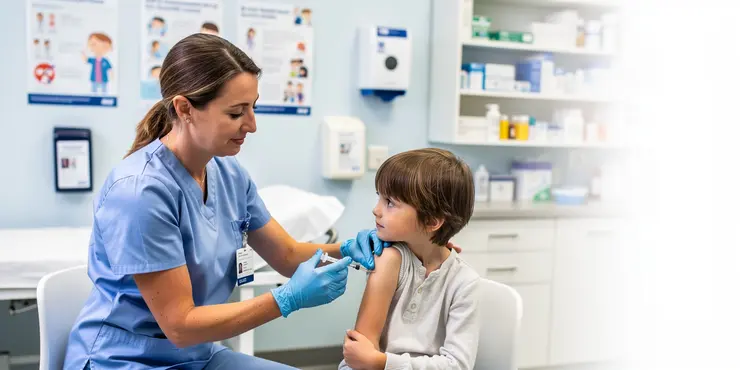
What are vaccines and how do they work?
Relevance: 33%
Introduction
Impetigo is a common and highly contagious skin infection that primarily affects infants and young children, although it can also occur in adults. Characterized by red sores or blisters that can rupture, ooze, and form a yellowish-brown crust, impetigo is caused by either the Staphylococcus aureus or Streptococcus pyogenes bacteria. With its easy transmission through direct contact with the sores or through contact with items like towels, it's a concern for parents and communities trying to prevent its spread.
Current Status of Vaccines for Impetigo
As of now, there is no vaccine specifically designed to prevent impetigo. The development of such a vaccine is complicated by the nature of the bacteria involved and the body’s immune response to them. Scientists are actively researching to better understand these bacteria and to develop effective prevention strategies, but as it stands, prevention primarily depends on good hygiene practices.
Why a Vaccine is Challenging to Develop
Developing a vaccine for impetigo is challenging for several reasons. First, the Staphylococcus aureus and Streptococcus pyogenes bacteria have various strains and can cause a range of infections beyond impetigo, complicating the development of a targeted vaccine. Second, these bacteria can adapt and develop resistance, which makes it difficult to create a long-lasting, effective vaccine. In addition, the skin's immune response to these bacteria can vary from person to person, adding another layer of complexity.
Current Treatments and Preventative Measures
While there is no vaccine, impetigo is typically treated with antibiotics, either in topical ointment form for mild cases or oral antibiotics for more severe cases. Completing the full course of antibiotics is crucial to fully clear the infection and minimise the risk of transmission. Preventative measures focus on hygiene: regular hand washing, keeping cuts and scratches clean and covered, and avoiding the sharing of personal items are key strategies to prevent the spread of the bacteria.
Future Prospects and Research
Research is ongoing into developing a vaccine that could provide protection against the bacteria that cause impetigo. Advances in understanding bacterial genomics and the human immune response have opened new avenues for potential vaccines. In the meantime, studies continue to explore ways to improve treatment efficacy and develop better preventive measures. Public health education remains essential in managing the spread of impetigo in schools and communities.
Conclusion
While the hope for an impetigo vaccine remains, current efforts are directed at good hygiene practices and effective use of antibiotics to manage and prevent this common infection. As researchers continue to work towards a vaccine, the public is advised to maintain awareness and adhere to preventive measures to control the spread of this infectious disease.
Introduction
Impetigo is a skin infection that spreads easily. It mostly affects babies and young children, but adults can get it too. Impetigo causes red sores or blisters. These can break open, leak fluid, and form a yellow-brown crust. It's caused by bacteria called Staphylococcus aureus or Streptococcus pyogenes. It spreads through touching the sores or sharing things like towels. Parents and communities need to be careful to stop it from spreading.
Current Status of Vaccines for Impetigo
Right now, there is no vaccine to stop impetigo. Making a vaccine is hard because of how the bacteria act in our bodies. Scientists are studying to learn more about the bacteria. They hope to find ways to stop the infection. For now, keeping clean is the best way to prevent impetigo.
Why a Vaccine is Challenging to Develop
Making a vaccine for impetigo is tough. The bacteria have many types and can cause different infections. This makes it hard to create one vaccine for all. The bacteria can also change and resist treatment. This makes it difficult to make a vaccine that works for a long time. Also, people’s skin can react differently to these bacteria, making it more complicated.
Current Treatments and Preventative Measures
Even without a vaccine, impetigo can be treated. Doctors use antibiotics, which might be a cream for the skin or pills to swallow. It's important to take all the medicine as told to stop the infection completely. To prevent impetigo, wash hands often, keep cuts clean and covered, and don't share personal things.
Future Prospects and Research
Scientists are working on making a vaccine for impetigo. They are learning more about the bacteria and our body’s defenses. Until we have a vaccine, research is looking for better treatments and ways to stop impetigo from spreading. Teaching people about impetigo helps keep it from spreading in schools and places where people gather.
Conclusion
We hope for an impetigo vaccine in the future, but for now, keeping clean and using antibiotics correctly is important. Researchers are working hard on a vaccine. Meanwhile, everyone should follow good habits to stop impetigo from spreading.
Frequently Asked Questions
Is there a vaccine for impetigo?
No, there is currently no vaccine for impetigo.
What causes impetigo if there's no vaccine?
Impetigo is caused by bacteria, mainly Staphylococcus aureus or Streptococcus pyogenes.
How is impetigo treated without a vaccine?
Impetigo is usually treated with antibiotic ointments or oral antibiotics.
Can impetigo be prevented without a vaccine?
Yes, maintaining good hygiene and keeping skin clean can help prevent impetigo.
Why isn't there a vaccine for impetigo?
Impetigo is generally mild and treatable, so developing a vaccine is less prioritized.
Are there any ongoing efforts to develop a vaccine for impetigo?
Research is ongoing, but no vaccine is currently available.
How contagious is impetigo without a vaccine?
Impetigo is highly contagious, especially among children.
How can impetigo be managed in schools without a vaccine?
Ensuring good hygiene practices and treating affected children promptly can help manage outbreaks.
Is impetigo dangerous if there's no vaccine?
While it is generally mild, complications can occur if it is not treated properly.
What are the symptoms of impetigo if there's no vaccine?
Symptoms include red sores that burst and develop honey-colored crusts.
Can adults get impetigo since there's no vaccine?
Yes, adults can get impetigo, though it primarily affects children.
What can be done to reduce the spread of impetigo without a vaccine?
Frequent handwashing and avoiding sharing personal items can reduce spread.
Are there different types of impetigo?
Yes, there are two types: non-bullous and bullous impetigo.
Does impetigo resolve on its own?
Mild cases may resolve, but treatment is recommended to prevent spread and complications.
Can impetigo cause scars even without a vaccine?
Impetigo usually heals without scarring, but scratching can lead to scarring.
Is impetigo more common in certain seasons?
Impetigo is more common in warm, humid environments.
Can impetigo be mistaken for other skin conditions?
Yes, it can be mistaken for conditions like eczema or a fungal infection.
What hygiene practices can prevent impetigo in the absence of a vaccine?
Regular handwashing, keeping nails trimmed, and cleaning cuts promptly can help prevent it.
Can pets transmit impetigo to humans?
Impetigo is not typically spread by pets; it is primarily spread between humans.
If there's no vaccine, how long does impetigo last?
With treatment, impetigo usually clears up in 7 to 10 days.
Is there a shot to stop impetigo?
No, there is no shot to stop impetigo right now.
Why do people get impetigo if there is no vaccine?
Impetigo is a skin infection caused by germs.
To avoid impetigo, wash your hands often, and keep cuts clean.
If you get impetigo, tell an adult, and see a doctor. They can help you get better.
Impetigo is an illness that makes the skin sore. It is caused by germs. The germs have names. They are called Staphylococcus aureus and Streptococcus pyogenes.
How do you treat impetigo if there is no vaccine?
Impetigo is a skin infection. If there is no vaccine, you can still treat it. Here’s how:
- Keep the skin clean. Wash the area with soap and water.
- Use medicine from the doctor. A cream or ointment can help.
- Cover the sores. Use a bandage to stop germs from spreading.
- Avoid touching the sores. This stops it from spreading to other places.
- Wash hands often. This helps to keep the infection away.
Ask for help if you need it. A doctor or nurse can give advice. They may also give you medicine to take by mouth.
Doctors often use special cream or medicine to treat impetigo. This helps make it better.
How can you stop impetigo without a vaccine?
Yes, keeping your skin clean and washing regularly can help stop impetigo.
Why is there no shot for impetigo?
Impetigo is a skin infection. It makes red sores.
There is no shot to stop impetigo yet.
Doctors are working to make one.
If you think you have impetigo, see a doctor. They can help.
Tools can help make reading easy. Try using pictures to learn more about impetigo.
Impetigo is a skin infection. It is usually not serious, and doctors can treat it. Because of this, making a vaccine is not a top priority.
Is anyone working on a medicine to stop impetigo?
Scientists are still working hard on this, but there is no vaccine ready for use right now.
How easily does impetigo spread without a vaccine?
Impetigo is a skin infection. It can spread to other people.
Wash your hands often. Keep cuts and scratches clean.
If you have impetigo, see a doctor. They can help make it better.
If you need help reading, ask someone you trust to help or use a read-aloud tool.
Impetigo is a skin infection that spreads easily, especially among kids.
How can schools handle impetigo without a vaccine?
Impetigo is a skin infection. Schools can manage it by keeping the infected area clean with soap and water. It is also important to wash hands often with soap. Kids with impetigo should stay home until they are not contagious. This can help stop the infection from spreading. Schools can also teach kids to cover their mouth and nose when they cough or sneeze to keep germs away.
Washing hands and keeping clean helps stop germs. If a child gets sick, help them get better fast. This can stop others from getting sick too.
Is impetigo dangerous if there is no vaccine?
Impetigo is a skin infection. It is not very dangerous. Most people get better with medicine from a doctor.
If you have impetigo, see a doctor. They will help you get better.
Use soap and water to keep the skin clean. This can help stop spreading the infection.
This problem is usually not serious, but it can get worse if you don't take care of it.
What are the signs of impetigo if there is no vaccine?
Impetigo is a skin infection. Here are the signs to look out for:
- Red spots on the skin
- Sores that leak a clear or yellow liquid
- Crusty yellow or honey-colored scabs
- Itchy skin
If you think you have impetigo, tell a grown-up or see a doctor.
It's good to wash your hands often to help stay healthy.
You might see red spots that pop and get a yellow crust.
Can adults get impetigo even though no vaccine exists?
Yes, adults can get impetigo. Impetigo is a skin infection that causes red sores. It is most common in children, but adults can also catch it.
Here’s what can help:
- Wash your hands often with soap and water.
- Keep your skin clean and dry.
- Use a bandage on cuts or scrapes to stop germs.
- Don't touch or scratch sores or blisters.
If you think you have impetigo, see a doctor. They can help you get better.
Yes, grown-ups can get impetigo too, but it mostly happens to kids.
How can we stop impetigo from spreading if there is no vaccine?
Here are some easy ways to stop impetigo from spreading:
- Wash Hands: Clean your hands with soap and water often.
- Don't Touch Sores: Try not to touch the sores or let others touch them.
- Use Bandages: Cover the sores with bandages to keep germs away.
- Don't Share Personal Items: Don't share towels, clothes, or toys.
- Clean Surfaces: Wipe areas that are touched a lot with cleaning spray.
- Cut Nails Short: Keep nails short to stop scratching.
Remember: These steps can help keep everyone safe!
Wash your hands often. Don't share your things with other people. This helps stop germs from spreading.
Are there different types of impetigo?
Yes, there are two main types of impetigo.
1. Non-bullous Impetigo: This is the most common type. It makes red sores that can burst and leave a yellow crust.
2. Bullous Impetigo: This type makes larger blisters filled with fluid. These can break and leave a sore.
Impetigo is a skin infection. It can make your skin sore and itchy.
Supportive Tools: You can use pictures to help understand. Ask someone to read with you. Use simple words to talk about impetigo.
Yes, there are two kinds: non-bullous and bullous impetigo.
Will impetigo go away by itself?
Impetigo is a skin infection. Sometimes it can get better by itself. But it is a good idea to see a doctor. They can help you get better faster.
If you have impetigo, wash your hands often. This helps stop the infection from spreading. Use clean towels and don't share them with others.
If you find reading difficult, ask someone to read with you. They can help you understand more.
Some people get better by themselves, but it's a good idea to get treatment. This stops it from spreading or getting worse.
Can impetigo leave scars if you don’t have a vaccine?
Impetigo is a skin infection. It can cause sores on your skin. Sometimes, when the sores heal, they might leave scars. Even if you don’t have a vaccine, you can still get scars from impetigo.
Impetigo gets better by itself, and it doesn't leave marks on the skin. But if you scratch it, it might make marks on your skin.
Does impetigo happen more in some seasons?
Impetigo is a skin infection. It can happen more often when it is warm, like in summer. It spreads more when people are together, like at school. Use hand washing and clean skin to stop it.
Impetigo happens more in places that are hot and sticky.
Can impetigo be confused with other skin problems?
Impetigo is a skin infection that causes sores. Sometimes, it looks like other skin problems. This can make it hard to tell them apart.
Here are some tips to help:
- Look at pictures of impetigo and other skin conditions. This can help you see the differences.
- Talk to a doctor or nurse. They can say if it is impetigo or something else.
- If the skin gets worse, tell a grown-up or guardian. They can help you get more advice.
Remember, it’s okay to ask for help if you’re not sure about a skin problem.
Yes, sometimes people confuse it with skin problems like eczema or a fungal infection.
How can we stop impetigo without a vaccine?
Here are some easy steps to keep skin healthy:
- Wash your hands often with soap and water. This helps kill germs.
- Keep your nails short and clean. This stops germs from spreading when you scratch.
- Cover cuts and scrapes with a clean bandage. This keeps germs out.
- Use a tissue or your elbow to cover your mouth when you sneeze or cough. Germs spread less this way.
- Don't share towels, clothes, or sheets with others. Germs can stick to these things.
You can ask an adult for help if you're not sure about something or need more tips.
Wash your hands often. Keep your nails short. Clean any cuts quickly. This can stop germs from spreading.
Can pets give people impetigo?
Impetigo is not usually spread by pets. It mostly spreads from one person to another.
If there is no medicine, how long does impetigo last?
Impetigo is a skin infection. It makes sores on your skin. If you do not use cream or take medicine, the sores can last for about 2 to 3 weeks.
Here are some tips to help:
- Keep the sores clean. Wash them gently with soap and water.
- Do not scratch the sores. Scratching can spread the infection.
- Keep your nails short to avoid scratching.
- Cover the sores with a bandage to stop the spread.
Ask for help from a doctor or nurse if you are worried.
With medicine, impetigo gets better in 7 to 10 days.
Useful Links
This website offers general information and is not a substitute for professional advice.
Always seek guidance from qualified professionals.
If you have any medical concerns or need urgent help, contact a healthcare professional or emergency services immediately.
Some of this content was generated with AI assistance. We’ve done our best to keep it accurate, helpful, and human-friendly.
- Ergsy carfully checks the information in the videos we provide here.
- Videos shown by Youtube after a video has completed, have NOT been reviewed by ERGSY.
- To view, click the arrow in centre of video.
- Most of the videos you find here will have subtitles and/or closed captions available.
- You may need to turn these on, and choose your preferred language.
- Go to the video you'd like to watch.
- If closed captions (CC) are available, settings will be visible on the bottom right of the video player.
- To turn on Captions, click settings .
- To turn off Captions, click settings again.
More Items From Ergsy search
-

Is there a vaccine for impetigo?
Relevance: 100%
-

Is impetigo contagious?
Relevance: 65%
-

Is impetigo painful?
Relevance: 64%
-

Pharmacy First – Impetigo Service
Relevance: 64%
-

How is impetigo treated?
Relevance: 62%
-

How can I prevent the spread of impetigo?
Relevance: 61%
-

Can adults get impetigo?
Relevance: 60%
-

Can impetigo become serious?
Relevance: 60%
-

Can I get impetigo more than once?
Relevance: 60%
-

How can I tell if I have impetigo?
Relevance: 59%
-

Minor ailment scheme - Impetigo
Relevance: 59%
-

Are there any home remedies for impetigo?
Relevance: 59%
-

When should I seek medical help for impetigo?
Relevance: 56%
-

How long does it take for impetigo to heal?
Relevance: 56%
-

Can impetigo spread to other parts of my body?
Relevance: 55%
-

What should I do if my child has impetigo?
Relevance: 40%
-

Are there vaccines for meningitis?
Relevance: 37%
-

Are vaccines safe?
Relevance: 37%
-

What is a vaccine?
Relevance: 37%
-

Is there a vaccine for H3N2?
Relevance: 37%
-

Is there a vaccine for norovirus?
Relevance: 36%
-

Is there a vaccine for gonorrhoea?
Relevance: 36%
-

Is there a vaccine for scabies?
Relevance: 35%
-

What is a subunit vaccine?
Relevance: 35%
-

What is a live-attenuated vaccine?
Relevance: 35%
-

Is the shingles vaccine safe?
Relevance: 35%
-

Children's Vaccination Schedule
Relevance: 35%
-

How do vaccines work?
Relevance: 35%
-

Why are vaccines important?
Relevance: 35%
-

What is the MMR vaccine?
Relevance: 35%
-

Is there a vaccine for the Zika virus?
Relevance: 35%
-

Are vaccines linked to autism?
Relevance: 35%
-

Is there a vaccine for Lyme disease?
Relevance: 35%
-

Is there a vaccine for Marburg virus?
Relevance: 35%
-

Are there vaccines available for HIV?
Relevance: 34%
-

Are there vaccines for the bubonic plague?
Relevance: 34%
-

What if I'm not eligible for a free flu vaccine, can I still get vaccinated?
Relevance: 34%
-

What are the different types of vaccines?
Relevance: 33%
-

Can everyone receive vaccines?
Relevance: 33%
-

What are vaccines and how do they work?
Relevance: 33%


